Swansea Tidal Lagoon: Manufacturers 'urge go-ahead'
- Published
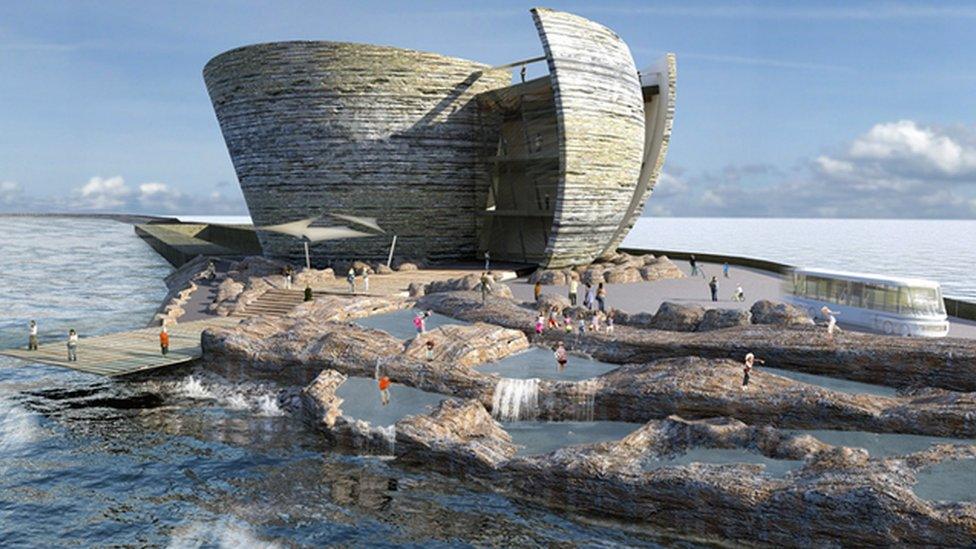
More than 20 industrial companies have urged the UK government to go ahead with the planned £1.3bn Swansea Bay tidal lagoon.
They said it could be crucial to meeting the UK's energy needs, in a letter to the Financial Times.
The Hendry Review - set up to consider the lagoon plan's viability - is to be published on Thursday.
The firms said the project was one of the "biggest industrial opportunities in a generation".
The co-signatories - including Sheffield Forgemasters, the steel and engineering company, and the British arm of General Electric - employ more than 42,000 workers at more than 250 UK sites.
They said: "We have at our fingertips a brand new sector that will create a multibillion-pound industry, provide tens of thousands of jobs across the country and create a significant local supply chain. All of this before we even think about the massive potential as a British export technology."
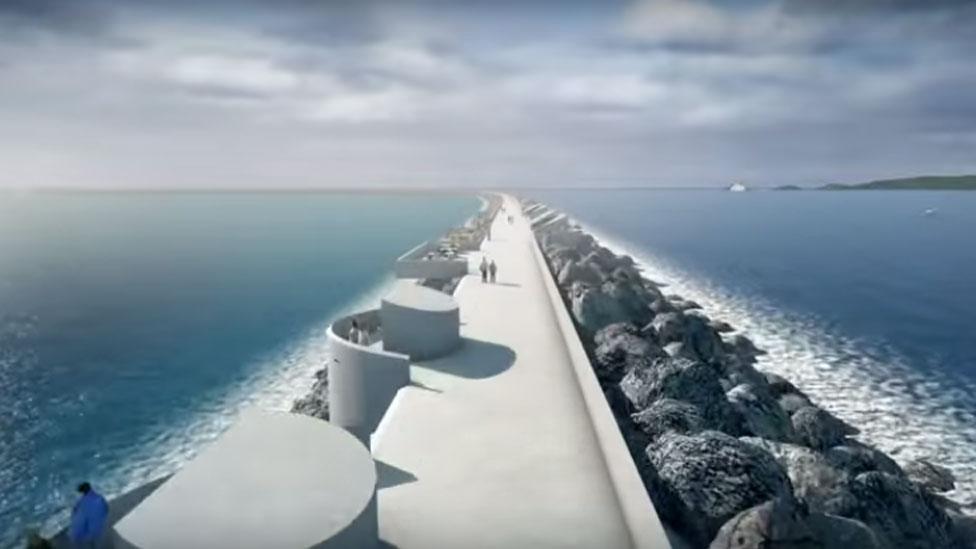
Those behind the new manufacturing and energy sector believe it can deliver sustainable, locally-produced electricity for about a hundred years.
There is cautious optimism that the Hendry Review, which is looking into the economic viability of the scheme, will give a thumbs up.
However, questions have been raised over the project, both in terms of its scale and its related electricity strike price - the government subsidy required for the power generated.
Tidal Lagoon Power, the company behind the plan, has said it is "confident" it could hit a "viable" electricity strike price, having also dismissed engineering and environmental impact concerns.
The project received planning consent in June 2015 from the then energy secretary Amber Rudd before the UK government commissioned former energy minister Charles Hendry to scrutinise whether it was a "cost-effective" solution.

Analysis from BBC Wales economics correspondent Sarah Dickins
The Swansea tidal lagoon project has been described as heralding a new industrial era. That may be over-egged but, if Swansea gets the go-ahead and if more lagoons follow, it could be that some of the parts for those lagoons would still be made in Wales. Certainly for Cardiff and Newport.
The company Tidal Lagoon Power is very ambitious. It is already talking about developing the technology in Gujarat in India. The challenge for Wales would be to develop an expertise which could benefit from similar projects internationally.
But we also need to remember that we will not know for sure until Thursday what the Hendry Report actually says and what the UK government response will be.
There are a number of variables. Even if it's a green light for the Swansea lagoon, the project still has to get a Marine Licence from the Welsh Government. That would not be automatic as there is significant opposition from environmental groups and anglers who fear the effects the Swansea lagoon might have, in particular, on fish breeding grounds.
Firms hoping to be part of the project's complex supply chain will have a much better idea of whether the UK is going to embrace this new source of energy generation on Thursday, but there may well be questions about the detail.

The Hendry Review was originally expected to be published last year but will now be released on Thursday.
However, those supporting the lagoon scheme believe it could generate enough clean energy from the ebb and flow of the tide to satisfy 11% of electricity consumption in Wales.
The wider plan is for the lagoon in Swansea Bay to be a prototype and the smallest in a series.
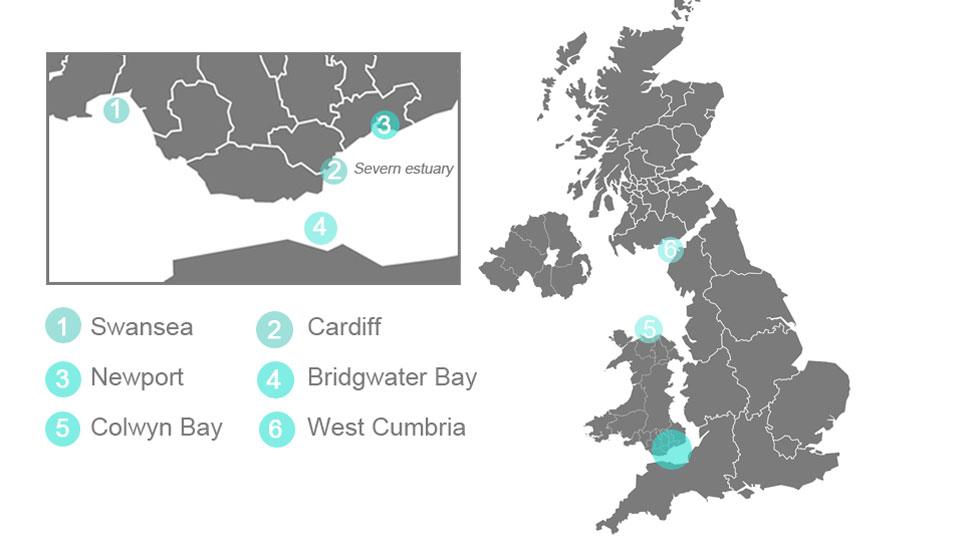
If approved, it would be followed by lagoons in Cardiff - east of where Cardiff Bay is now - Newport, Bridgwater Bay, Colwyn Bay and west Cumbria, north of Workington.
In their letter to ministers, the firms said the UK must have the confidence to embrace its "first-mover advantage" in a project which would boost the economy and employment.
"The world-first Swansea Bay tidal lagoon would use unproven, yet cutting-edge technology to provide a pathfinder for a fleet of larger projects which, if approved, could power up to a third of UK homes for the next five generations. It will catalyse a new British engineering and construction industry," they said.
Pembroke Dock-based engineering firm Ledwood and Goodwin Steel Castings, of Stoke-on-Trent, were also among the list of signatory companies.
Watch Tidal Lagoon Power's video of how the turbines would work
- Published7 November 2016

- Published9 June 2015
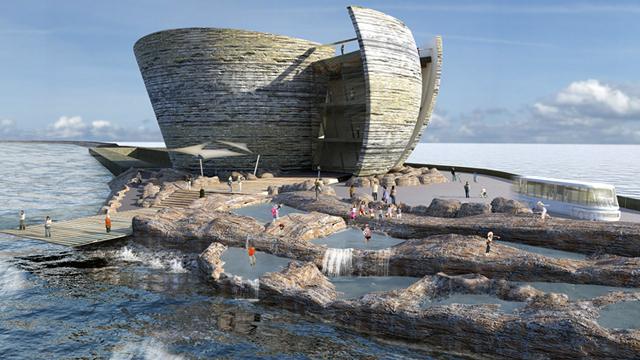
- Published2 October 2015

- Published7 February 2014
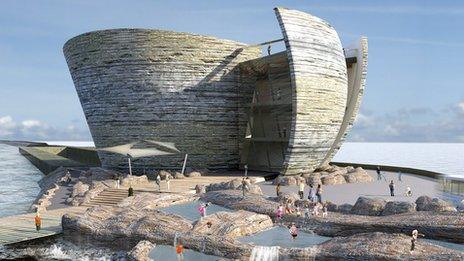
- Published15 January 2016
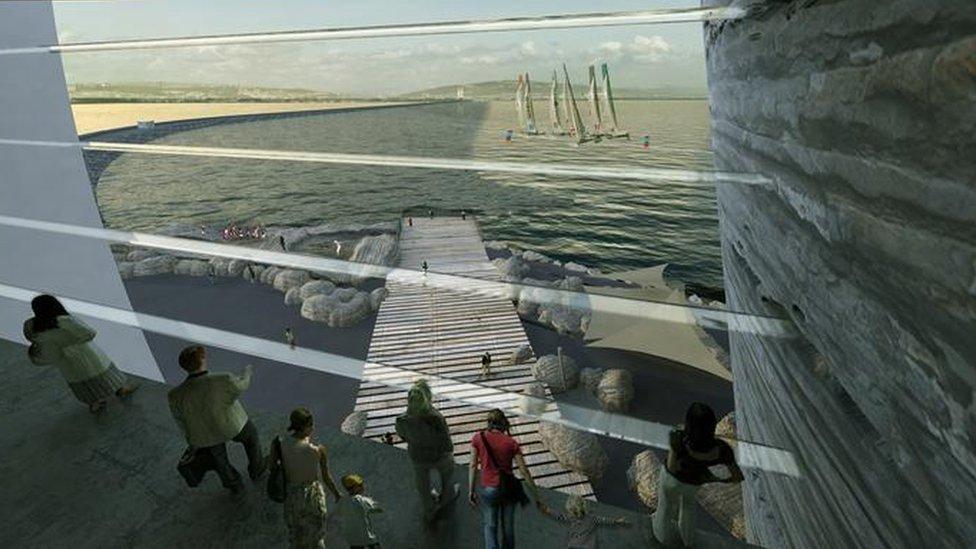
- Published13 January 2016
